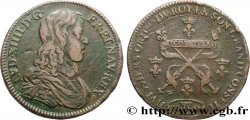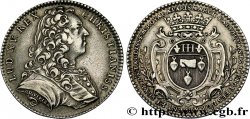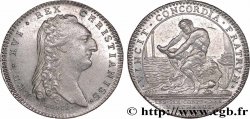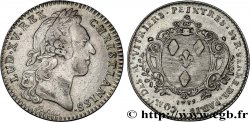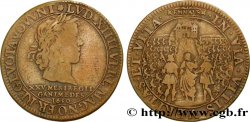fjt_744775 - CORPORATIONS Famille Sorin, joailliers et consul des marchands de Paris 1712
85.00 €(Approx. 96.90$ | 72.25£)
Quantity
Add to your cart

Type : Famille Sorin, joailliers et consul des marchands de Paris
Date: 1712
Metal : brass
Diameter : 29 mm
Orientation dies : 6 h.
Weight : 8,56 g.
Edge : lisse
Rarity : R1
Catalogue references :
F.5457 var. - 4572
Predigree :
Exemplaire provenant de la Collection MARINECHE
Obverse
Obverse legend : SORIN. 1712 DANS LE CHAMP.
Obverse description : Couronne de laurier.
Reverse
Reverse legend : LA. VILLE. DE. PARIS.
Reverse description : Vue de la ville en aval de l'île de la cité, avec Notre Dame, quelques-uns des clochers des quatorze églises paroissiales de ce quartier, la tour St Jacques et la coupole de la bibliothèque Mazarine.
Commentary
Si l’on en croit - et il n’y a pas raison de ne pas les croire - les documents d’archives sur les familles parisiennes mis en ligne à http://www.famillesparisiennes.org/public/orsel/sorin-actes.html car les dates se situent vers le début du XVIIIe siècle, comme notre jeton, on constate que ce jeton n’est pas d’une personne mais d’une famille. On y trouve François-Thomas Sorin, député et consul du commerce de Paris, qui habite rue St Martin, paroisse St Merry, Pierre Sorin marchand épicier à Paris, François Barraud, marchand joaillier de Paris et Claude-Françoise Sorin, son épouse, habitant quai de l'Horloge... et bien d’autres,et, selon la formule consacrée, rien que du beau monde.







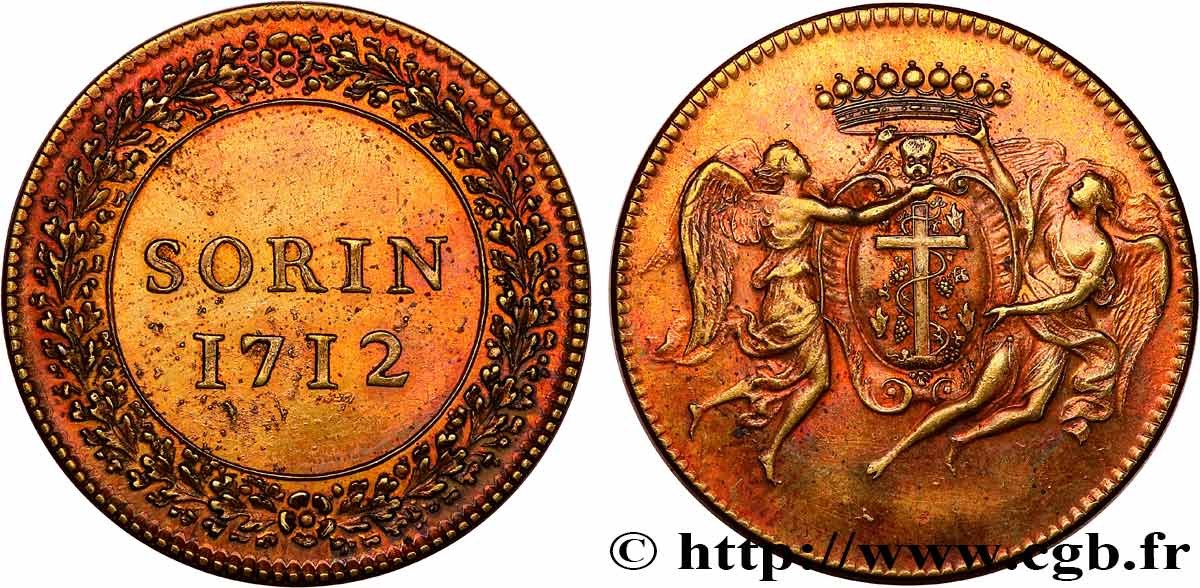
 Report a mistake
Report a mistake Print the page
Print the page Share my selection
Share my selection Ask a question
Ask a question Consign / sell
Consign / sell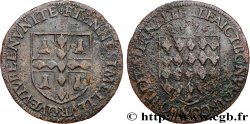
 Full data
Full data